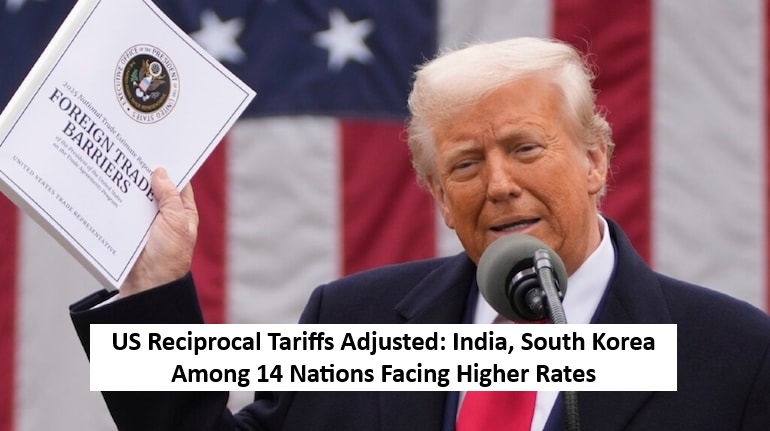
A discrepancy between the public presentation and formal documentation of the U.S. “Liberation Day” reciprocal tariffs has led to higher-than-expected duties for at least 14 countries. According to a Bloomberg review, the White House annex that will officially govern tariff implementation lists rates one percentage point higher than those announced in President Donald Trump’s Rose Garden presentation.
India, South Korea See Tariff Increase
India’s tariff, for example, is now listed at 27%, up from the 26% shown previously. South Korea’s reciprocal tariff has similarly risen from 25% to 26%. Other affected countries include Botswana, Cameroon, Malawi, Nicaragua, Norway, Pakistan, the Philippines, Serbia, South Africa, Thailand, Vanuatu, and the Falkland Islands.
How the New Tariff Structure Works
As per the executive order signed by President Trump, all U.S. trading partners will begin with a baseline 10% tariff starting April 5. However, countries listed in the annex will see their tariffs increased to the specified rates four days later. This tiered approach is intended to address perceived trade imbalances and apply higher duties to nations with significant surpluses or non-reciprocal trade practices.
Omissions Raise Further Questions
The annex also omits several overseas territories that had been mentioned in Trump’s initial charts, leading to uncertainty. Reunion (a French overseas region), Saint Pierre and Miquelon (a French territory near Canada), and Norfolk Island (an Australian territory) were all shown with separate tariffs in the charts but do not appear in the annex. This may default their status to that of their parent nations—France (20% under the EU) and Australia (10% global minimum).
No White House Response Yet
White House officials have not commented on the discrepancies or the status of omitted territories, leaving many trade experts and foreign governments awaiting clarification ahead of the policy's implementation.
Read More: You Are Playing with the Country's Security Amit Shah's Direct Message to Mamata Banerjee

 Share
Share



